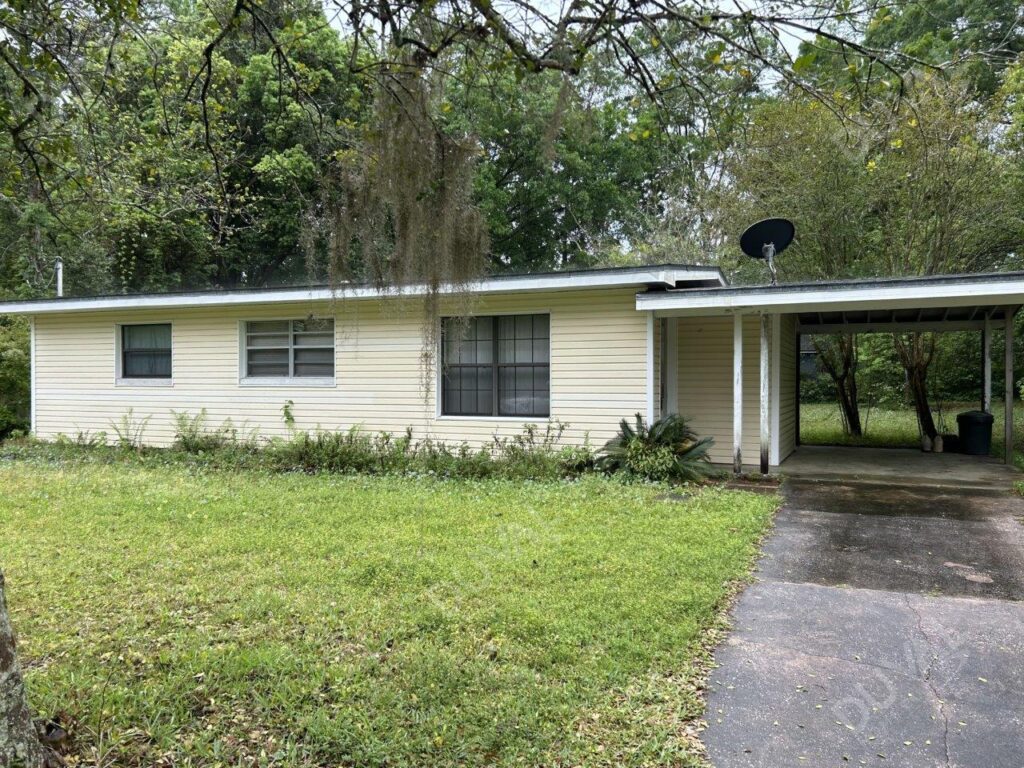
Posted on April 5, 2024 by Duval Home Buyers in Sell Your Home Jacksonville
How to Sell Your Home to an Investor in Jacksonville: A Guide
It’s 7:45 on a Friday and you are late for work. As you grab your keys, your phone rings. It’s your realtor, telling you that there is an interested buyer and that they want to show the house that afternoon. You clean in a frenzy to ensure that everything is perfect for the showing. It’s pure stress. That afternoon your agent calls and says the buyer has decided to go a different direction. You’ll get the next one.
For home sellers, this can be one of the many realities they face when trying to find a buyer for their home. According to the data from NEFAR, it takes an average of 69 days on the market before a sale. And even when a buyer is found, there are still inspections, repairs, and financing questions. All which can derail your sale. In fact, in some months it’s been reported that up to 15% of contracts fall through. Forcing a seller start over and find a new buyer.
For sellers who don’t have the luxury of time, don’t have the funds needed to make required repairs, or who simply don’t want to deal with the usual stress of selling, there is always the option of selling to an investor. Investors can offer speed, simplicity, and convenience compared to the traditional way of selling a home, though you typically make a little less from the sale.
Selling to an investor is easy, but making sure you find the right investor to fulfill your needs is important. This guide will break down what to look for in a good investment buyer, and the process of getting a home sold to an investor.
The Basics of Selling to an Investor
Real estate investors are individuals or companies that purchase real estate assets, typically homes, in order to make a profit. Using cash or an established line of business credit they can avoid the typical lender requirements for condition and value.
Investors typically prefer properties that need maintenance, repairs, or have other issues that the traditional system fails to address. But many investors are happy to purchase any type of home, as long as the seller is willing to part with a little bit of their equity – the profit they would earn from selling.
When you sell to an investor, you should expect to earn less from your sale than you would with a real estate agent. Though with a good investor as a buyer, it shouldn’t be by much. In return, you will get a nearly guaranteed sale, rather than having your home become one of thousands on the market. There are over 8,000 homes listed on the Northeast Florida MLS as of April 2024. With just 2542 sales in March 2024, the chances of successfully selling the traditional way are a lot slimmer.
Preparing Your Home to Sell to an Investor
The first step in any sale is to understand the value of what you are selling. When it comes to your home, there are many tools that can be used to give a value estimate, but it’s always best to get the opinion of a local professional for the most accurate valuation. Tools like Zillow can provide a ballpark, but they can’t take into account information that isn’t public record such as condition.
Many of the best investors are licensed real estate agents, and will be more than happy to provide comparable sales as evidence of their pricing to ensure everything is as transparent as possible.
One of the biggest benefits of selling to an investor, is that reputable investors buy homes “as-is” which means that they won’t ask you to make any repairs or changes. Unlike a traditional sale in which buyers routinely request thousands of dollars in repairs such as new roofs, updated plumbing, or repairing wood rot. Often as a requirement of the bank giving them their loan.

An as-is house sold to Duval Home Buyers in Jacksonville Florida
Selling as-is also means that you can take what you want and leave the rest, and don’t need to worry about deep cleaning, patching nail holes, or touching up paint. If you’re a landlord and have had bad tenants, or have inherited a home, it can also save you the huge hassle of cleaning it up for showings.
Finding the Right Investor in Jacksonville
You wouldn’t let just anybody into your home. Be just as careful with investors. Making sure you find the right investor or investment company is the most important part of ensuring a good sale. There are thousands of people and hundreds of companies out there that claim to buy houses for cash, so how do you know who to trust?
- Locality – Choosing a local investor is always a good idea. Local investors operate in a small market, so their reputation matters. Ensuring you have a good experience is critical to their future business, so they’ll go the extra mile to ensure you are cared for. Local investors also have a better understanding of local laws, customs, and even pricing. If you are in Jacksonville, make sure you choose a company that buys houses from Jacksonville.
- Licensure – Doctors know medicine, real estate agents know housing. Ensuring your buyer is licensed offers a few benefits. First, they are bound by the laws and regulations of the state real estate board. This ensures an extra level of protection for you as a seller. They understand the sales process, and know how to keep a sale moving forward smoothly, ensuring you close on time. Finally, they have a realistic understanding of their local market, and can offer more transparency in pricing.
- Reputation – Using companies with visibility on sites like Google can help ensure you work with a reputable buyer. Companies with large numbers of user reviews and positive feedback are often the best options. You can also check websites like The Better Business Bureau to see if the company you choose has had any complaints.
- Contactability – A good investment company should be easy to contact. They should prominently display a local telephone number, with actual humans on the other end. Not a Google voice line and an answering service. They should have a local, verifiable address, and an office you could visit if necessary.
- History of Success – Check online with websites like the Duval County Property Appraiser or the Official Records Department for deeds and titles in the name of the individual or company that you are thinking of working with. You should see a history of recent transactions if the buyer is active and legitimate.
The Sales Process
Once you’ve determined that you are going to work with an investor, and have an idea of which reputable investors you can trust, you will be ready to start the sales process. Here are the usual steps you can expect when working with an investor.
- Contact – Reach out via phone, email, or an online contact form to let the investor know you’d like to discuss selling your home to them.
- Discuss – Over the phone or via email the investor will ask you questions such as the condition of the home, your situation and why you want to sell, and how much you hope to get from it.
- Schedule – Schedule an appointment for the investor to come and inspect your home. They’ll take photos and notes about the condition. Using these notes they’ll prepare a valuation and present an offer. Some companies provide offers without needing to visit your home, but these are often lower due to the increased risk, so we advise that you always have the buyer walk the property.
- Negotiate – Agree on a suitable price and set timeframes that meet your needs.
- Contract – The investor will send a real estate contract with the details you agreed on. This is often done using a digital signing service, but it can also be done with a pen and ink in person. Once signed, the buyer will send a deposit to a local, licensed title company, who will handle the legal side of the transaction.
- Move – If you live in the house, take the possessions you want and leave the rest. Good investors are flexible with moving timeframes, and can allow you to move out the day of closing, or even months after you sell the home. Be sure to ask your buyer about your options.
- Close – Sign the sales paperwork with the title company handling the sale. This needs to be done in front of a Notary and two witnesses. Most title companies in Florida offer this service as part of closing your sale. You can choose to have your money sent directly to your bank via a wire transfer, or you can opt to get a check from the title company. Note, that it can take up to 1 business day for funds to clear, so don’t be alarmed if it takes a few hours. Using a local, reputable title company will ensure you are protected.
Is Selling to an Investor Right for Me?
While it is ultimately your decision if selling to an investor is the best way to sell your home, it’s important to weigh the pros and cons.
Benefits include:
- A faster sale (usually less than 30 days from the day you first contact the investor)
- No need for repairs
- Can be flexible with code violations and permitting issues
- No cleaning
- As little as one showing
- Leave what you don’t want
- Move on your timeline
- No real estate agent fees
Where the main drawback of selling to an investor buyer is that you will likely receive a lower offer than you would from selling the traditional way with an agent.
Regardless of your decision, all reputable investors offer free consultations, and offers with absolutely no obligation to accept. It doesn’t hurt to see what a local investor would pay, even if you decide to sell with an agent. The worst case scenario is you have more information. And that information can help empower you to make a great sale.
